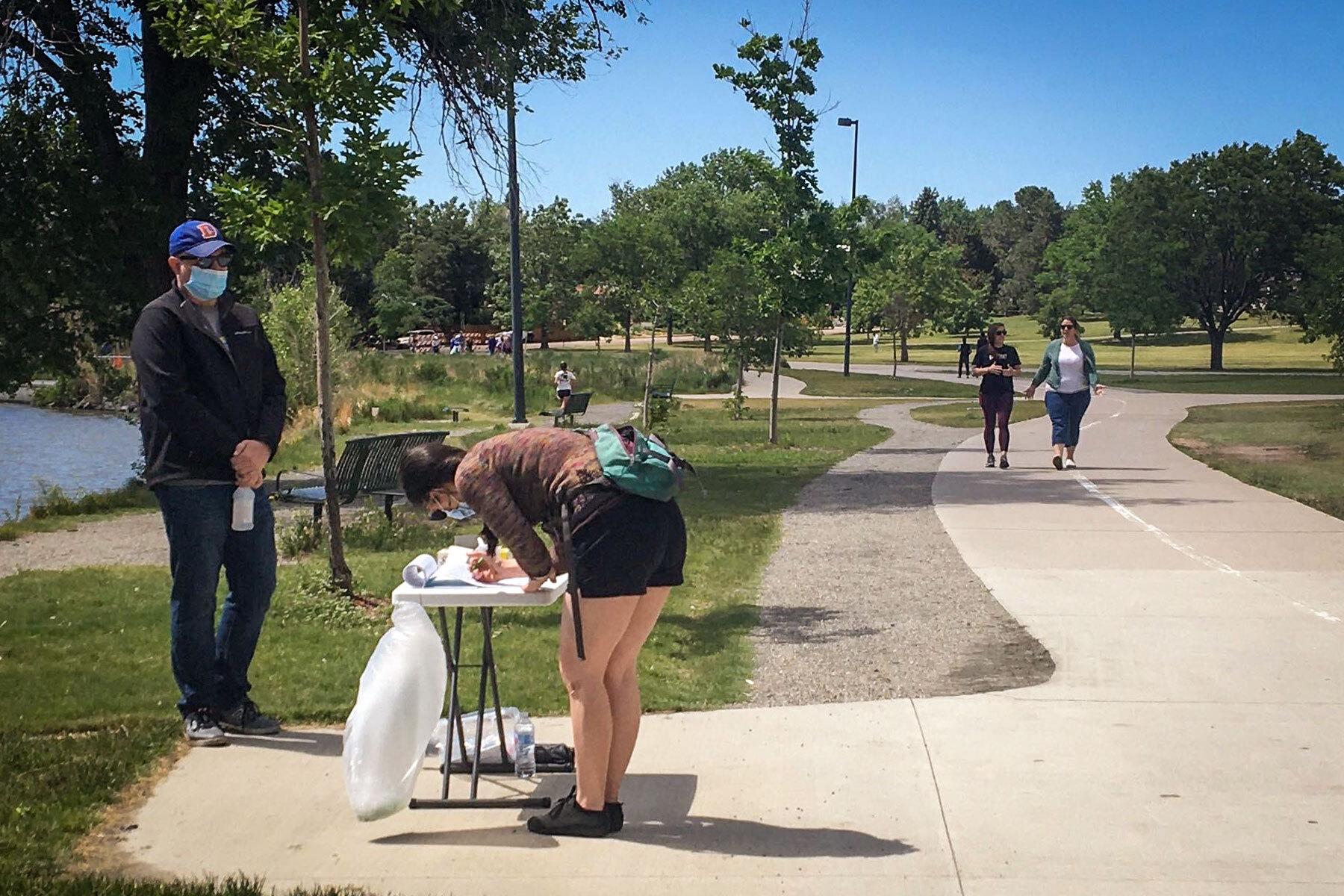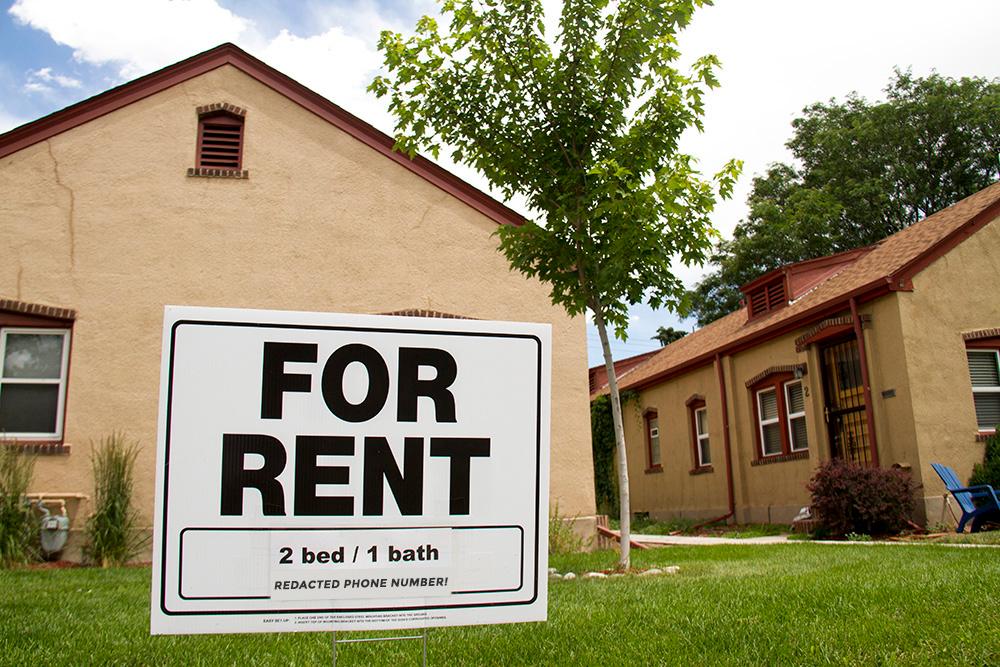
Colorado voters will have many decisions to make in November, and not just about their elected officials. The state will also decide on topics ranging from abortion to voting and taxes. And with the deadline now passed for groups to turn in signatures to the Secretary of State’s office, the list of ballot measures could rise to an even dozen.
Five initiatives made it in by Monday's deadline and will now have their petitions reviewed by state officials. Under Colorado law, a campaign needs at least 124,632 valid signatures for a measure to make the ballot.
This year groups had the added challenge of collecting signatures during a pandemic. Traditionally, campaigns rely on paid petition circulators who work crowded events and busy parking lots. With much of society still shut down, the task proved too much for the Fair Tax Initiative, which failed to turn in signatures.
“The cost to gather signatures in a pandemic was outlandish,” said Carol Hedges, the head of the Colorado Fiscal Institute, one of the groups backing the measure.
The proposal would have increased taxes for the top 5 percent of earners and lowered them for everyone else; it would have raised an extra $2 billion for the state, with half of the proceeds earmarked for K-12 public schools.
Hedge’s called the failed effort a gut punch. “It’s unbelievable that the system is so oriented to the ability to hire paid signature gatherers to get on the ballot. It really undermines the very idea of a citizens ballot initiative.”
But voters will likely get a chance to weigh in on other tax questions coming from the other end of the political spectrum. Two ballot initiatives backed by conservative groups have turned in signatures.
One would cut the state’s flat income tax rate from 4.63 percent to 4.55 percent.
The other, Initiative 295, would require voters to approve any government fee increase that generates $100 million over a five year period.
Michael Fields heads Colorado Rising State Action which is supporting the initiative. He said Colorado’s deep budget shortfall makes the proposal more relevant, and he fears state lawmakers will use fees as a way to help fill deep cuts to state programs.
“Once you explained what our ballot initiative was, people were enthusiastic to sign it,” Fields said. But he acknowledged that it may be a challenge to bring that information to voters in general, because of the proposal’s complexity and all of the other election-related questions on the ballot. “There’s so many things going on this year. You’re also going to have a huge electorate so you have to talk to more people.”
If passed, Fields’ initiative could affect the ongoing effort by some Democratic state lawmakers to use a fee on workers and employers to fund a multi-billion dollar paid family leave program. While nothing on that front passed at the state capitol this year, voters may still get a chance to weigh in on the idea.
Liberal groups have submitted signatures for a proposal that would allow for up to 12 weeks of paid leave and would apply to both public and private sector workers. Employees would pay no more than 50 percent of the cost. Businesses with fewer than ten employees would be exempt from paying into the system.
“Paid family and medical leave is not just the right thing to do, it will benefit my business,” said Dan Shannon, the owner of Gary’s Auto Service in a statement from Colorado’s Family’s First which is backing the initiative. “Ask any business owner, the hardest thing to do is to find and keep reliable, skilled employees. This policy would provide a low cost option for me to offer a benefit that will help me keep my workers.”
One other initiative is also awaiting signature verification. It would let voters in Colorado’s three gaming towns -- Cripple Creek, Center City, and Black Hawk -- to set the maximum wager amounts for casinos in their communities. Current state law caps wagers at $100.
A group trying to change the process to expunge criminal records for some crimes also turned in signatures, but only 255, or .2 percent of the necessary amount. It was deemed insufficient a day after the signature deadline.
Pending measures for November’s statewide ballot:
- Local Voter Approval of Gaming Limits: would give voters in Colorado’s three established gaming towns final say over what games are offered and the maximum allowable size of wagers. (Read the initiative text here)
- Paid Family And Medical Leave Insurance Program: Would create a statewide program to provide partial wage replacement for workers who take family leave. (Read the initiative text here)
- Voter-Approval Requirement For Creation Of Certain Fee-Based Enterprises: would require lawmakers go to the voters before creating very large new government entities funded by fees. (Read the initiative text here)
- State Income Tax Rate Reduction: would enact an ongoing across-the-board income tax cut. (Read the initiative text here)
What’s Already Been Approved for the November Ballot:
Statutory Changes:
- Should Colorado join the National Popular Vote compact, with the goal of electing the U.S. President through a national popular vote if enough states sign on? (This citizen-initiated measure would undo last year’s SB19-42)
- Should Colorado increase taxes on cigarettes, and other items that include nicotine, such as vaping products? The money raised would go to tobacco education, preschool and other programs. (This measure was referred to the ballot by state lawmakers via HB20-1427)
- Should Colorado reintroduce gray wolves on designated land in Colorado west of the Continental Divide? (Read the initiative text here)
- Should Colorado prohibit abortions beyond 22 weeks of pregnancy, except when it is immediately required to save the life of the pregnant woman? (Read the initiative text here)
Constitutional Amendments:
- Should the state change how charitable gaming activities are managed to allow bingo-raffle licensees to hire managers and operators to reduce the period of time an organization has needed to exist before obtaining a charitable gaming license? (This measure was referred to the ballot by state lawmakers via HCR20-1001)
- Should Colorado Repeal part of the Gallagher Amendment, which limits residential property taxes to 45 percent of the statewide tax base,while businesses pay the remaining property taxes? (This measure was referred to the ballot by state lawmakers via SCR20-001)
- Should the state constitution be amended to require that Colorado voters must be U.S citizens? (Read initiative text here)
Editor's Note: This story has been updated with news that the measure on criminal records was found to have turned in too few signatures to qualify for the ballot.







